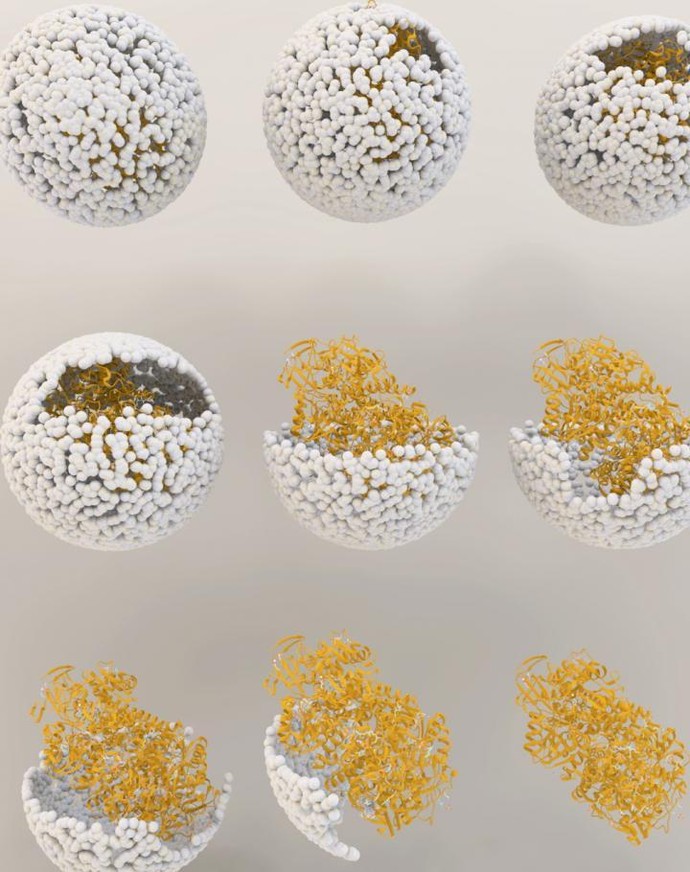| News  RSS RSS 05 Jan 2016 18:00:16 Source In the USA created a "nanoreactor" to produce hydrogen biofuelScientists at the University of Indiana in the USA have managed to create a biomaterial that acts as a highly efficient catalyst for producing hydrogen from water. Approval Phys.org that is half the battle towards receiving hydrogen gas from water and the creation of cheap and efficient engines. Read more... Scientists at the University of Indiana in the USA have managed to create a biomaterial that acts as a highly efficient catalyst for producing hydrogen from water. Approval Phys.org that is half the battle towards receiving hydrogen gas from water and the creation of cheap and efficient engines. Biomaterial called P22-Hyd as enzyme uses hydrogenase. She received a protein shell (capsid) from the bacteriophage P22, which made the enzyme 150 times more effective than the standard variations. Hydrogenase, in turn, produces two common gene of Escherichia coli during fermentation at room temperature.
Potentially the biomaterial P22-Hyd comes out clean and cheap in production. In most concept cars to generate hydrogen used expensive platinum. The material is comparable to platinum in terms of efficiency, but unlike it is a renewable, scientists say. See also: the
Other news in this section
| Categories
|
© 2025 b4by.org
